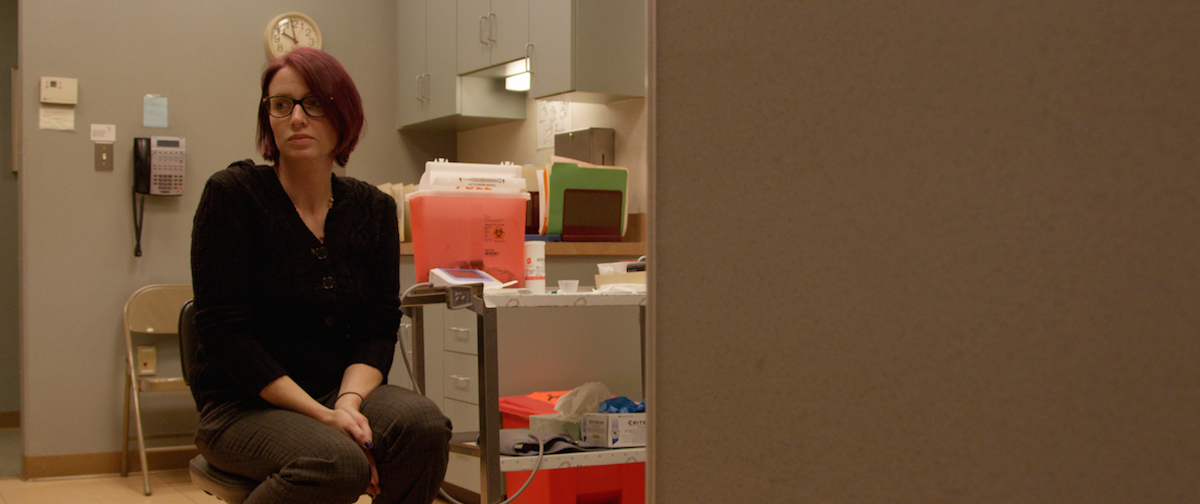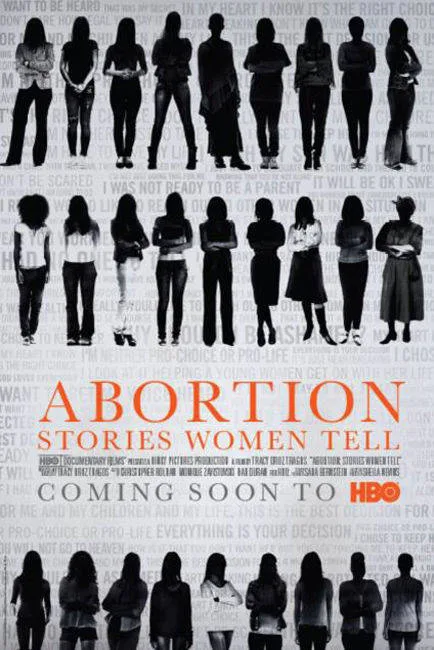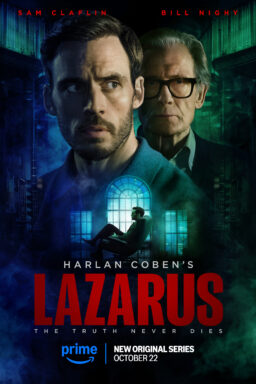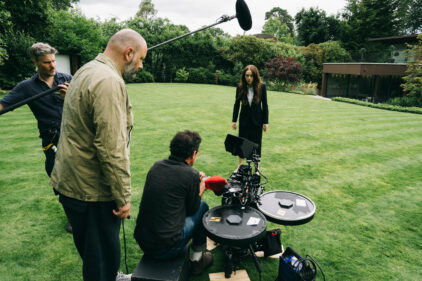Watching HBO’s “Abortion: Stories Women Tell,” which gets a limited theatrical release this week before an airing on the network, I was struck by how many documentaries on the subject I’ve seen in just the last few years. And I was struck even more by the variety in their approach: “Trapped” focuses on the laws that are essentially making abortion illegal in several states; The excellent “After Tiller” looks at the few doctors left willing to perform third-trimester abortions and the danger they face to do what they think is right. “Abortion: Stories Women Tell” has a clear focus that’s right there in its title: approaching the subject from the women with first-hand experience. In an interesting twist, director Tracy Droz Tragos doesn’t only speak to the women who have chosen to have abortions but people like the security guard at the clinic (nicknamed Chi Chi because she’s small and feisty like a Chihuahua) and even those on the other side of the issue, including prominent female voices in the pro-life organization 40 Days For Life. But what’s essential about Tragos’ film is that the male voices we hear are almost exclusively on the fringe: men in the parking lot of a clinic yelling about Jesus or lawmakers trying to essentially subvert Roe v. Wade. This is an issue about women’s rights and so this powerful film exclusively listens to the stories that women tell.
Some of those stories are among the most resonant I’ve heard in a documentary this year. Particularly memorable is the tale of Amie, a young woman who simply can’t afford to have another baby as she already works multiple jobs to keep her child fed as it is. Several of the people we meet in “Abortion: Stories Women Tell” are in this situation: knowing that their family will go hungry if there’s another mouth to feed. Others are in that tragic position in which they’ve learned that their baby won’t survive after birth. Others are in abusive relationships. A woman tells a heartbreaking tale of being with such an abusive partner that she knew bringing a baby into the situation would only put her child’s safety at risk. It’s important to realize, although Tragos doesn’t underline this fact, that every story is different. Money, health, abuse—everyone has a reason, and despite what pro-life proponents would have you believe, none of those reasons feel poorly-considered.
“Abortion: Stories Women Tell” takes an interesting turn when it crosses the aisle, presenting interviews with people trying to shut down clinics in Missouri (which they have essentially done, sending women who need abortions over state lines to the more lenient Illinois). Tragos’ allegiance is clear, but these films often falter when they demonize the opponent, and hearing a woman honestly speak about how she believes she’s saving lives when she protests abortion clinics highlights the complexity of the issue. She doesn’t have any doubt that what she’s doing is right. And Tragos’ film is at its best when it’s interested in commonality. There’s a great moment in which a woman who works at the Illinois clinic where most of the film takes place sings along to protestors with “Jesus Loves Me.” One of the last lines of the film is “Do what you think is right.” So many people involved with the war for the right to legal and safe abortions and those against them are doing what they think is right.
While “Abortion: Stories Women Tell” strengthens its clear pro-choice stance by allowing the other side some time in front of the camera, it is not an overtly political film. We learn about the dynamic along this Midwestern border, in which one state has TRAP laws so tough that it pushes women in need to another, and that naturally carries some political baggage, but it is the women and their stories that matter. It is the faces, particularly Amie’s incredible courage and humanity to let us share a very difficult journey with her, that people will remember. And that’s why these films keep getting made, and keep mattering to viewers. As people debate the issue in presidential campaigns, it is the world of the documentary that reminds us what this issue is really about: Women. Listen to their stories.




















